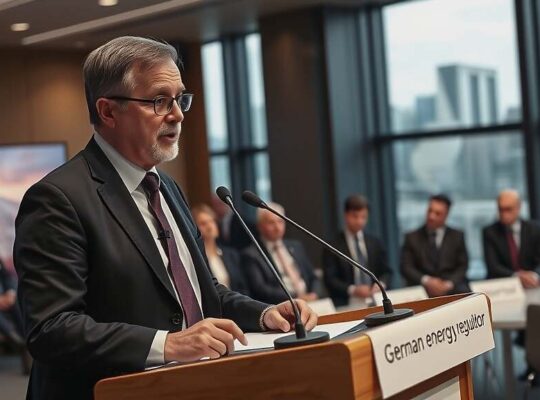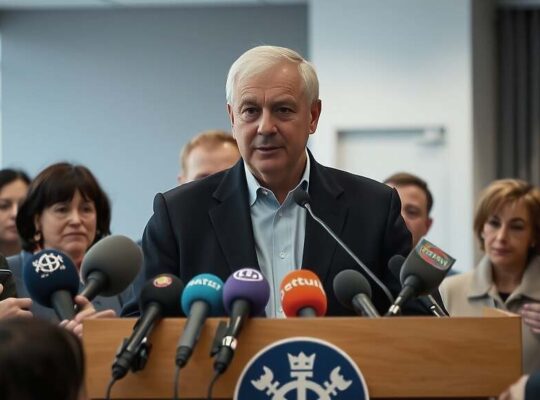The International Monetary Fund (IMF) has modestly revised upward its global economic growth forecasts, including a slight increase for Germany. For 2025, the Washington-based institution now projects a 0.1% growth rate for the German economy, a revision from the 0.0% forecast issued in April. The IMF maintains its 0.9% growth expectation for Germany in 2026.
Despite the upward adjustment, Germany is anticipated to remain at the lower end of the performance spectrum amongst major economies in 2025. The Eurozone is now projected to grow at a rate of 1.0%, a 0.2 percentage point increase from the April estimate. Globally, economic growth is now expected to reach 3.0%, representing a 0.2 percentage point increase compared to April projections.
The US is currently forecast to experience 1.9% growth, an uptick from the 1.8% projected in April. Previously, in January, economists had anticipated a 2.7% growth rate for the US economy. China’s growth forecast has been raised from 4.0% to 4.8%. The IMF now estimates a 0.9% growth rate for the Russian economy, a downward revision from the 1.5% anticipated in April.
The IMF cautioned that economic uncertainty remains elevated. The anticipated expiration on August 1st of exemptions to higher tariffs for many of the US’s trade partners, coupled with threats from the US government in July regarding the imposition of even steeper tariffs, are cited as contributing factors.
Furthermore, the organization highlighted potential repercussions stemming from the ongoing conflicts in Ukraine and the Middle East. The report warns that an escalation of geopolitical tensions, particularly in the Middle East or Ukraine, could trigger new negative supply shocks for the global economy. Potential disruptions to shipping routes and supply chains, alongside rising commodity prices-particularly if supply infrastructure is compromised-could dampen growth and reignite inflationary pressures. The IMF notes that central banks could face more complex decisions as a result, given existing challenges within the trade environment.












